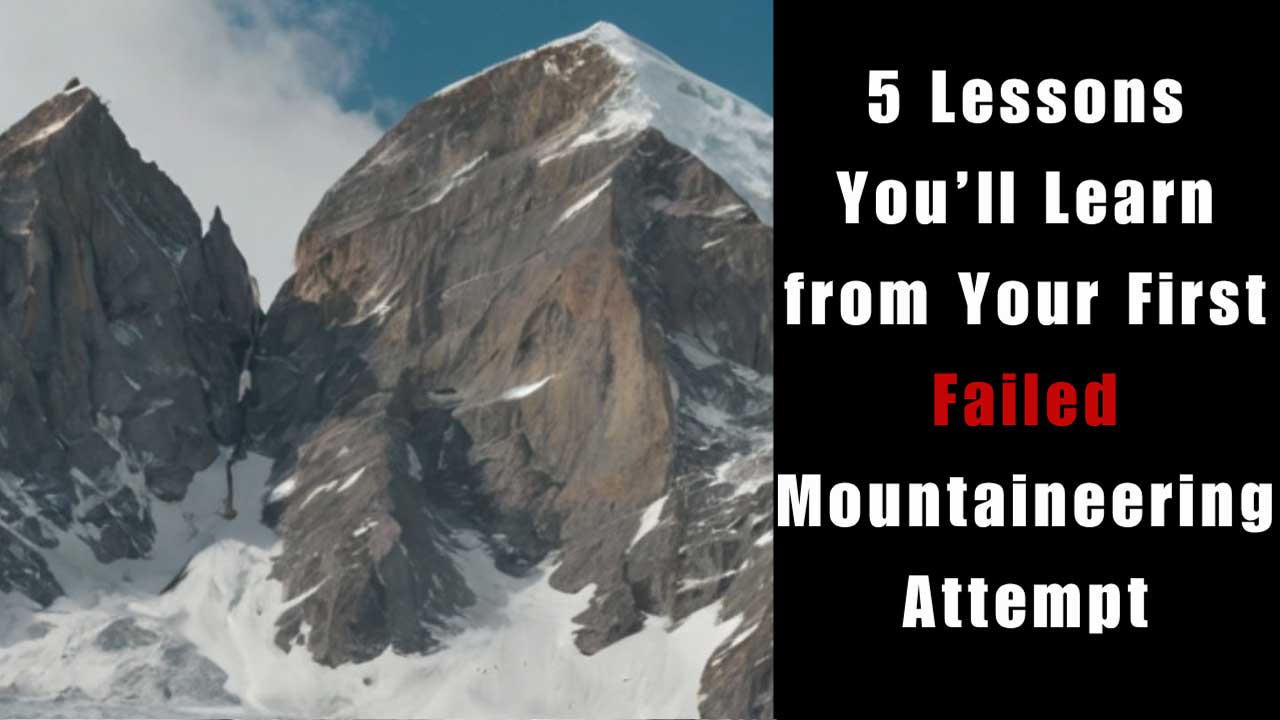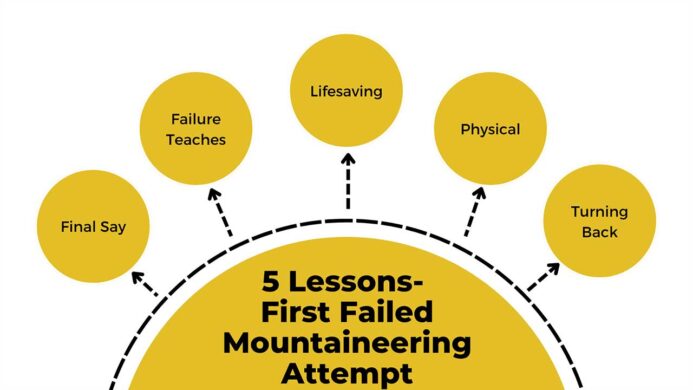5 Lessons You’ll Learn from Your First Failed Mountaineering Attempt
Athlete Health
Introduction
Failure is a word most people avoid—but in mountaineering, it’s almost a rite of passage.
Whether it’s your first high-altitude trek or a technical alpine climb, chances are you’ll face setbacks: illness, injury, bad weather, or logistical issues. And while not reaching the summit can feel devastating, it often becomes your most valuable experience.
At Ascent Descent Adventures, we’ve seen it repeatedly—students who return stronger, smarter, and more mentally resilient after a failed attempt. This blog breaks down the five most important lessons you’ll learn when things don’t go as planned.
1. The Mountains Always Have the Final Say
No matter how well you train or plan, the mountains are unpredictable. Rapid weather changes, rockfall, avalanches, or altitude-related illnesses can derail your climb in an instant.
Key Lesson: You’ll learn to respect nature—not control it.
Instead of seeing the mountain as something to conquer, you begin to understand it as a living force with its own rhythm and rules.
Takeaway for Future Climbs:
Always build flexibility into your plans. Train for the unknown, not just the expected.
2. Failure Teaches You More Than Success
Reaching the summit can sometimes hide your mistakes. But when you don’t succeed, every error stands out—whether it was poor pacing, hydration mistakes, improper layering, or carrying the wrong gear.
Example: One of our participants on the Hampta Pass Trek turned back due to early signs of AMS (Acute Mountain Sickness). They returned the following year with better acclimatization strategies—and summited safely.
Key Lesson: Failure forces you to reflect and improve.
Whereas success gives you confidence, failure gives you clarity.
3. Your Gear Isn’t Just Optional—It’s Lifesaving
Many first-time trekkers and climbers learn the hard way that gear matters. Forgotten gloves, non-breathable jackets, or improper boots can turn minor discomfort into a safety hazard.
Key Tip: Your first failed attempt will almost certainly refine your personal gear checklist. You’ll learn what’s actually essential vs. what’s just weighing down your backpack.
Grab our complete Mountaineering Gear Checklist (PDF).
This list is used across all our Himalayan expeditions and courses.
4. The Real Journey is Mental, Not Just Physical
Physical training is important, but mental stamina is what sees you through. A failed attempt tests your emotional resilience—how you deal with disappointment, fatigue, fear, and change.
Mental Shifts You’ll Make:
- Learning to stay calm when plans collapse
- Accepting uncertainty
- Rebuilding confidence
- Learning the value of turning back
At ADA, we emphasize mindset training in all our mountain training courses, because your head can take you where your legs can’t.
5. Turning Back is a Mark of Wisdom—Not Weakness
One of the hardest lessons you’ll learn is this: knowing when to quit is a skill. Beginners often equate pushing through pain or poor conditions with courage. But in reality, turning back can be the most experienced decision you make.
Why It Matters:
Your safety—and that of your team—depends on objective judgment. The mountains will still be there. The bravest climbers are often the ones who turn around before it’s too late.

Conclusion: Every “Failure” Builds a Better Mountaineer
Your first failed attempt might sting. But it will also:
- Make you more respectful of the mountains
- Sharpen your skills
- Improve your decision-making
- And most importantly, prepare you for future success
Whether you’re eyeing the Pin Parvati Pass Trek or a technical climb in Ladakh, failure isn’t the end of the story—it’s the beginning of a smarter, stronger version of you.
Plan Your Next Attempt with ADA
Ready to return stronger? Join our advanced training programs or climbs or treks with experienced guides who’ve seen it all.
Let your journey continue—with better preparation, and a mindset built on experience.
Recommended Read for Mindset & Practical Tips:
- 5 Mental Shifts to Help You Succeed in Mountaineering
- 5 Ways to Stay Calm During a Mountain Emergency
- 5 Habits of Responsible Beginner Mountaineers
- 5 Things Your Instructor Won’t Tell You (But You Should Know)